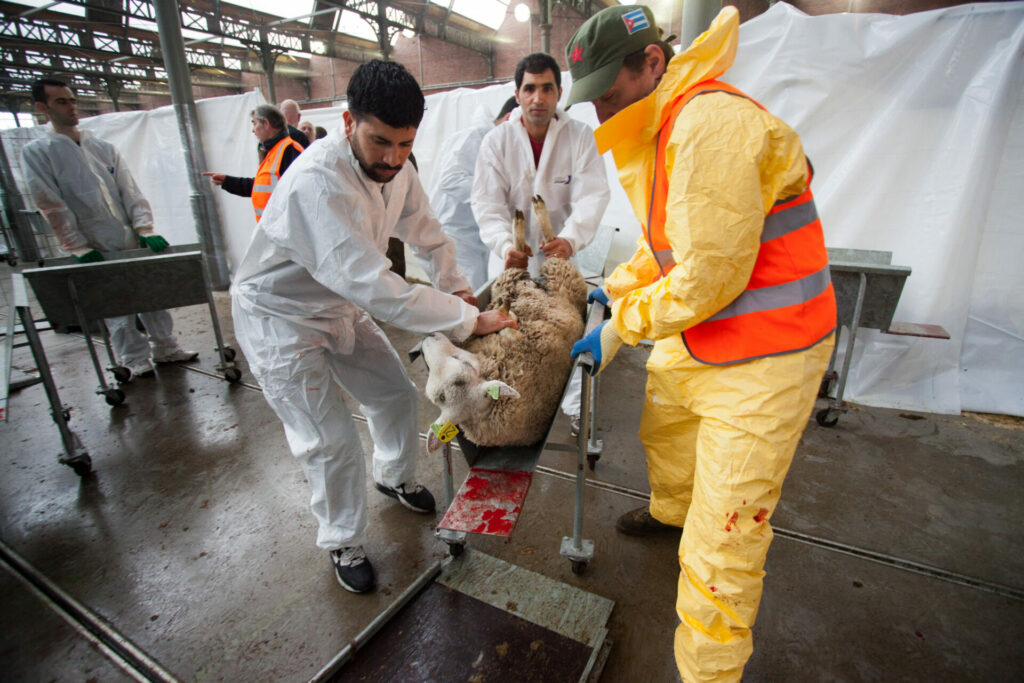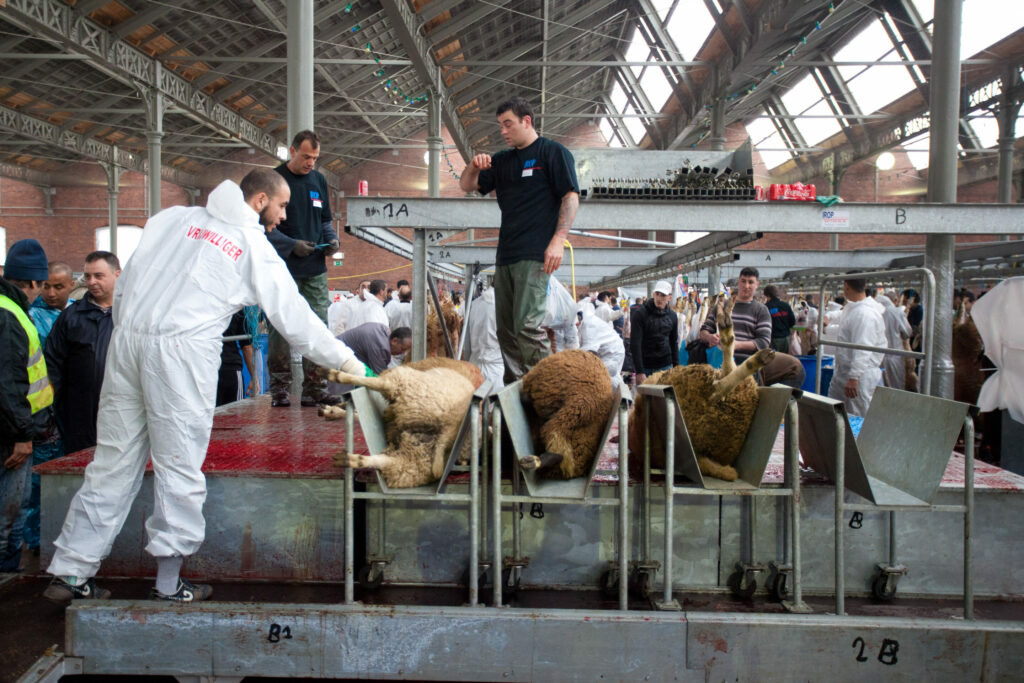Several groups in Belgium's Muslim and Jewish communities have expressed disappointment about a ruling by the European Court of Human Rights (ECHR), which rejected claims that the ban on slaughtering animals without first stunning them constitutes a breach of religious freedoms.
The ECHR court in Strasbourg delivered its long-awaited ruling on the Flemish and Walloon ban on the unstunned slaughter of sheep and cattle to produce halal or kosher meat. The ban came into force in 2019 and was on several occasions challenged by the two religious communities.
"In a judgment handed down [on Tuesday], the Court ruled that while the ban on unstunned slaughter constitutes an interference with religious freedom, this interference is sufficiently proportionate," the Executive of the Muslims of Belgium and the Coordination Council of the Islamic Institutions of Belgium said in a press release.
Justified and proportionate
The judgement stated that the ban, which had the effect of prohibiting the slaughter of animals without prior stunning in the Flemish and Walloon Regions, does not exceed the margin of proportionality.
The ECHR added that the measure appeared to be "justified in principle" to protect animal welfare. The court rejected claims that the ban infringed any freedom of religion (Article 14, prohibition of discrimination).
However, the Muslim organisations asserted that the freedom of religion enshrined by both the UN Universal Declaration of Human Rights and the European Convention on Human Rights is under constant pressure. "Time and again, new laws restrict the freedom of Muslims to practise their faith."

Men slaughtering a sheep during the Eid al-Adha feast. Credit: Belga/ Julien Warnand
The Belgian Muslim community is concerned that the restrictions will feed the community's feeling of being rejection and discrimination. Belgian Muslim institutions are now considering taking the case to the Grand Chamber of the Human Rights Court for "the last word in this fraught case."
They argue that the court "did not correctly carry out" its analysis and "wrongly ignored the fundamental and practical obstacles that the ban creates for Muslims in Belgium."
Related News
- Ban on unanaesthetised slaughter: ECHR rejects freedom of religion violation
- Ban castration of piglets without anaesthetic, animal rights group says
The European Jewish Congress (EJC) also expressed its "deep concern for the future of viable Jewish community life in Europe" after the Court upheld the ban," said EJC President Ariel Muzicant.
"Restrictions on fundamental aspects of Jewish religious freedom of expression, coupled with a background of massive increases in antisemitic attacks on Jewish communities, lead us to seriously consider whether Jews have a future in Europe," he said.
This decision proves that basic EU legislation allowing Member States to derogate from the protection of ritual slaughter and impose selective bans "does not protect minority communities in Europe and their religious practices," Muzicant said, adding that other attempts to follow the Belgian ban are already seen across Europe as well, "now sadly legitimised by the ECHR."

